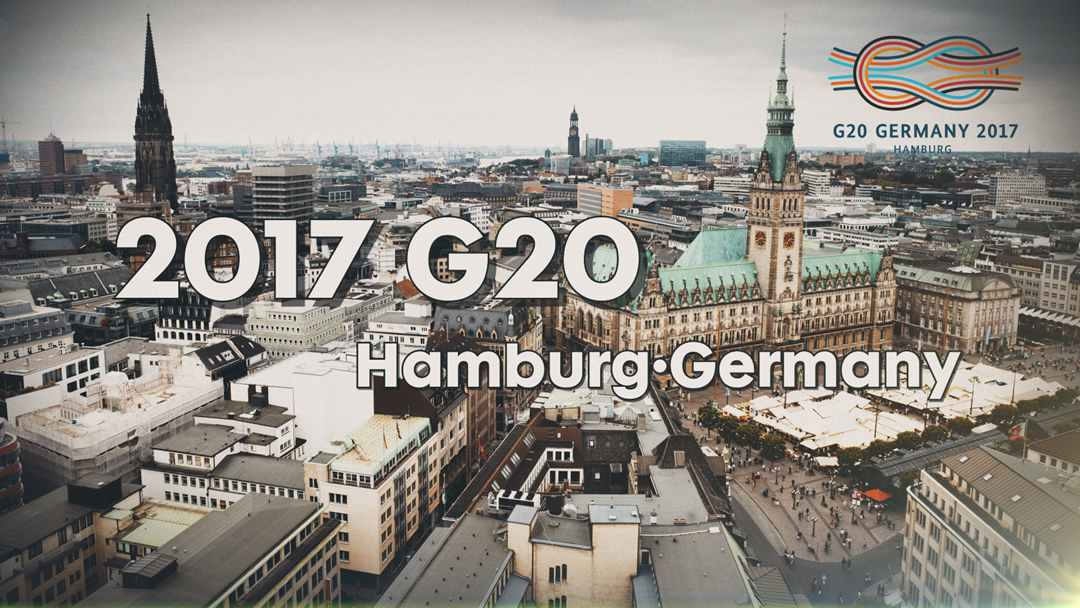The 2016 G20 Hangzhou summit concluded with historic consensus on free trade and climate change. Now, all eyes are on the G20 Hamburg summit, slated for Friday and Saturday, to see how the high-profile event will advance the same issues, the importance of which have gained momentum as opinions about them further diverged.
As daunting challenges still persist in the world economy, it is important that the G20 “continues to follow through on the consensus reached at Hangzhou and all its previous summits and lead the way forward for the world economy,” Chinese President Xi Jinping noted in a signed article titled “To Make the World a Better Place” published on Tuesday in mainstream German media.
“I look forward to working with Germany to advance the China-Germany comprehensive strategic partnership and contribute to the full success of the Hamburg summit,” said Xi.
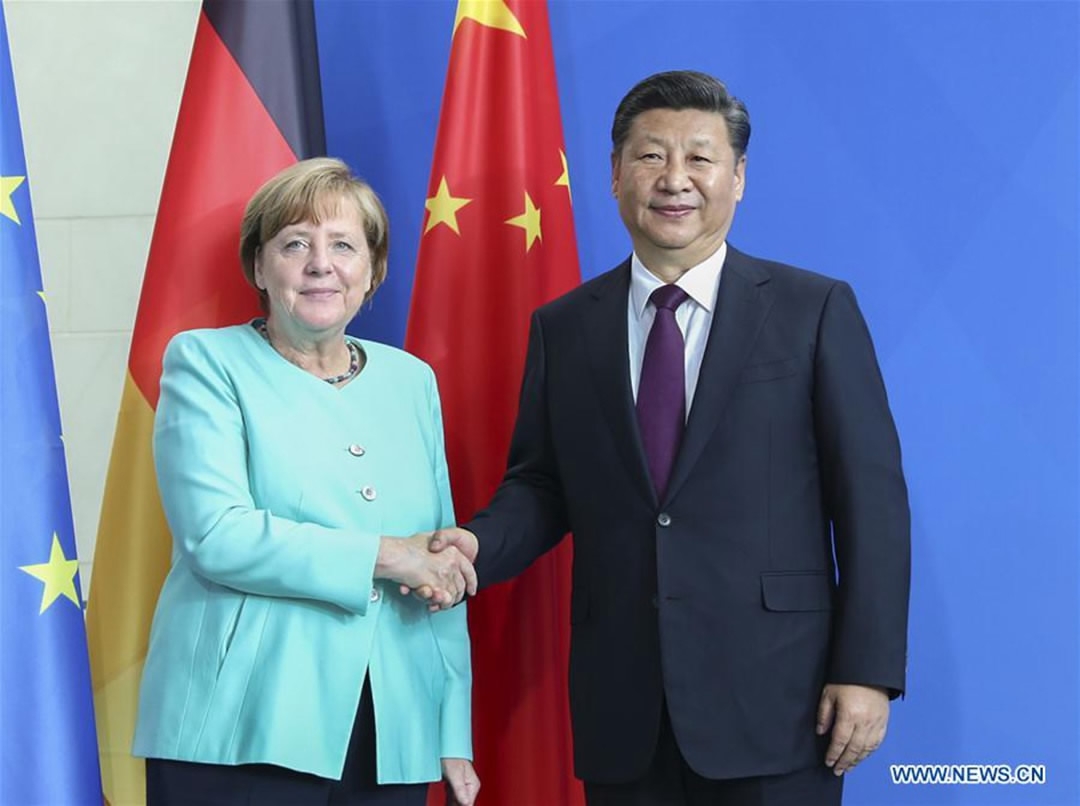
Chinese President Xi Jinping (R) holds talks with German Chancellor Angela Merkel in Berlin, Germany on July 5, 2017. /Xinhua Photo
Chinese President Xi Jinping (R) holds talks with German Chancellor Angela Merkel in Berlin, Germany on July 5, 2017. /Xinhua Photo
Xi arrived in Berlin on Tuesday for his second state visit to Germany, where he will also attend the G20 Hamburg summit.
Earlier in April, Chinese Foreign Minister Wang Yi said that both summits can “inherit the past and usher in the future.” As the chair of the 2016 G20 summit and a comprehensive strategic partner of Germany, China will fully support Germany to host the 2017 summit successfully, Wang noted.
'Shaping an interconnected world'
The 2017 G20 summit is themed “Shaping an interconnected world”, which experts deem as a continuation of 2016’s "Toward an innovative, invigorated, interconnected and inclusive world economy."
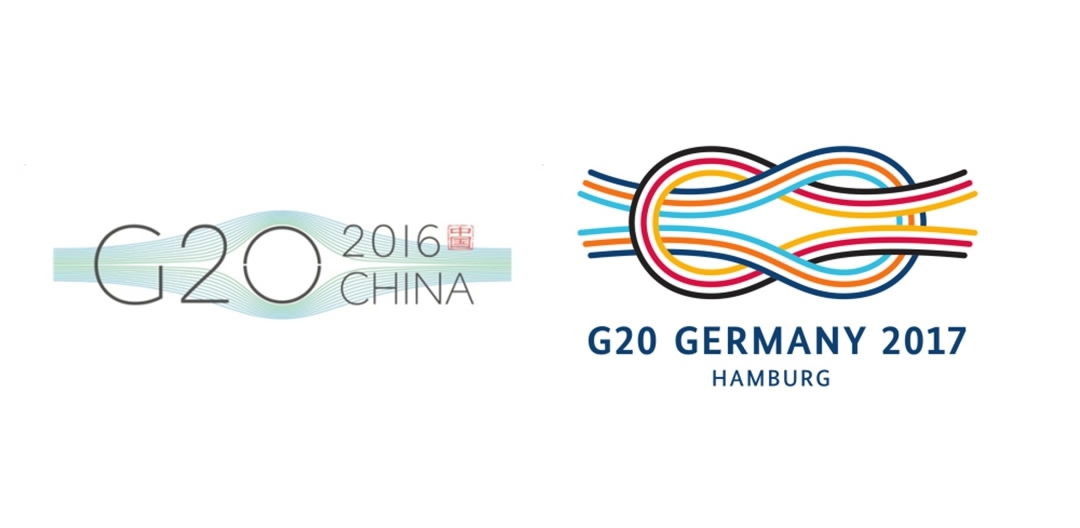
Photo via G20 official websites
Photo via G20 official websites
Highlighting the word “interconnected” not only shows a link in the themes, but also conveys interconnectivity as a prerequisite for world economic development, according to Chen Fengying, former director of the Institute of the World Economic Studies at the China Institutes of Contemporary International Relations.
Furthermore, the reiteration of “interconnected” reflects how the international community refuses isolated development and expects to push forward globalization, as noted by Li Xiangyang, the director of the National Institute of International Strategy at the Chinese Academy of Social Sciences.
Free trade and climate change
Wang said the 2017 G20 summit comes at a time when the international political and economic situation is undergoing new changes.
German Ambassador to China Michael Clauss said things have gotten tough since the inauguration of US President Donald Trump, whose policies have shown signs of rising trade protectionism.
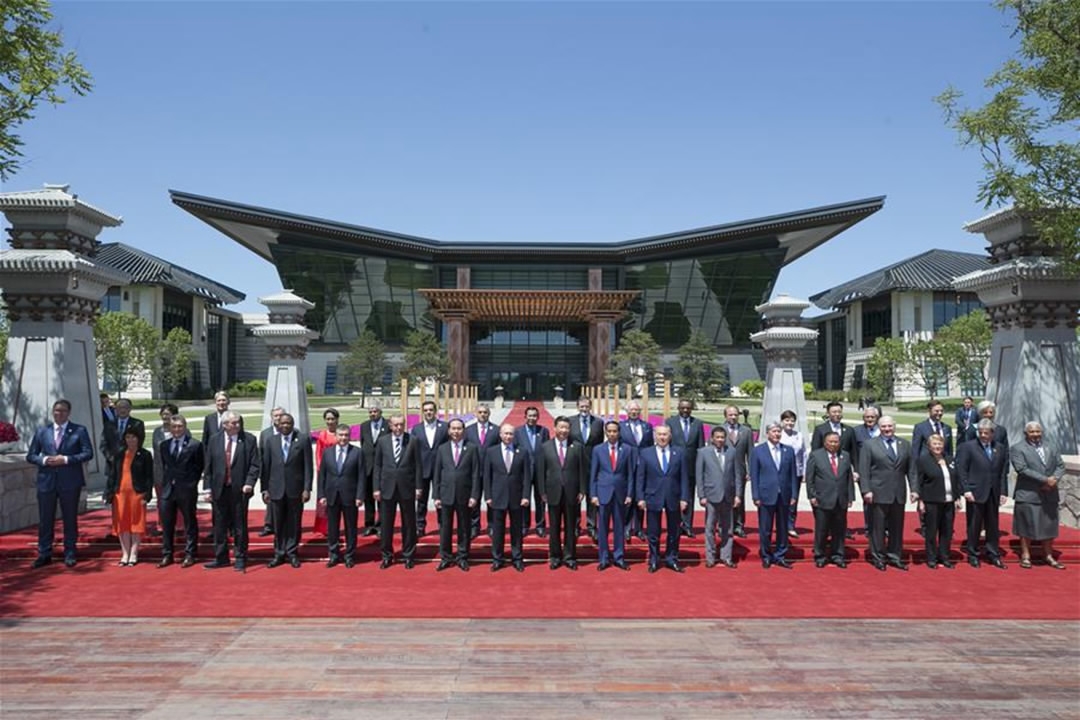
Chinese President Xi Jinping, foreign delegation heads and guests pose for a group photo at the Leaders' Roundtable Summit of the Belt and Road Forum for International Cooperation in Beijing, China on May 15, 2017. /Xinhua Photo
Chinese President Xi Jinping, foreign delegation heads and guests pose for a group photo at the Leaders' Roundtable Summit of the Belt and Road Forum for International Cooperation in Beijing, China on May 15, 2017. /Xinhua Photo
Meanwhile, Clauss pointed out that the Belt and Road Initiative is the Chinese way of globalization. He noted the attendance of Brigitte Zypries, Germany’s minister of economic affairs and energy, at the Belt and Road Forum for International Cooperation in Beijing this May, and said Germany welcomes the initiative.
"Two-thirds of the countries along the Belt and Road route are below the investment grade. The initiative… helps them develop their economy and stabilize their political situation…like China's investment in Africa,” said Clauss. “It is crucial to Germany, since Germany sees a big problem with refugees (especially from Africa), and we hope to eradicate the cause.”
The consensus at the 2016 G20 summit was to reject protectionism and promote global trade and investment. Both Chen and Li believe President Xi will propose valuable solutions to promote and sustain the healthy development of the global economy at the upcoming Hamburg summit.
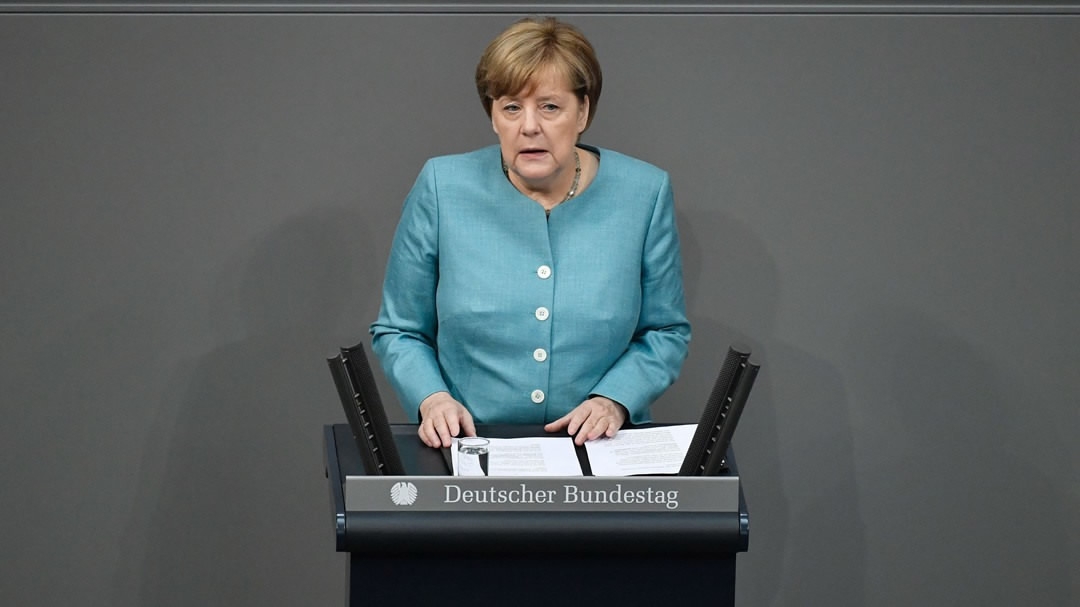
German Chancellor Angela Merkel delivers a speech at the Bundestag, lower house of Parliament, on June 29, 2017 in Berlin, ahead of the July 7-8 G20 summit. /VCG Photo
German Chancellor Angela Merkel delivers a speech at the Bundestag, lower house of Parliament, on June 29, 2017 in Berlin, ahead of the July 7-8 G20 summit. /VCG Photo
Tackling climate change will be another central task of the upcoming G20 summit, according to German Chancellor Angela Merkel, who said the Paris climate accord is "irreversible and non-negotiable" and is determined to use the summit to defend it, after Trump decided to withdraw the US from it in June.
The US currently is the world's second largest emitter of greenhouse gases. The Obama administration pledged to cut carbon emissions by 26-28 percent within a decade after signing the accord in 2015, based on 2005 levels, but now that Trump has opted out of the accord, emissions would probably be reduced by only 17 percent, the Financial Times reported.
"We want to express (at the 2017 G20 summit) that the Paris agreement still exists," said Clauss. The ambassador was grateful for China's commitment to the accord, and emphasized how China pushed the pact’s ratification at unprecedented pace when it was host to the 2016 summit.
Liu Jieyi, the Chinese ambassador to UN, delivered a speech on climate change at a New York event this March, saying: "Whatever the vicissitudes of the international situation, China will…actively respond to climate change."
Liu also revealed China's carbon intensity in 2016 fell by 6.6 percent compared to the previous year, exceeding far beyond the planned target of 3.9 percent.
Xi’s voice, key outcomes at 2013-2016 summits
At the 2016 Hangzhou summit, Xi gave China's "prescription" for the world economy, with suggestions covering key aspects of innovation, openness, global economic governance and inclusiveness.
The G20 Blueprint on Innovative Growth was adopted to open a new path towards increasing the medium-to-long-term potential of the global economy. Meanwhile, the United Nations Sustainable Development Goals became the new global development framework.
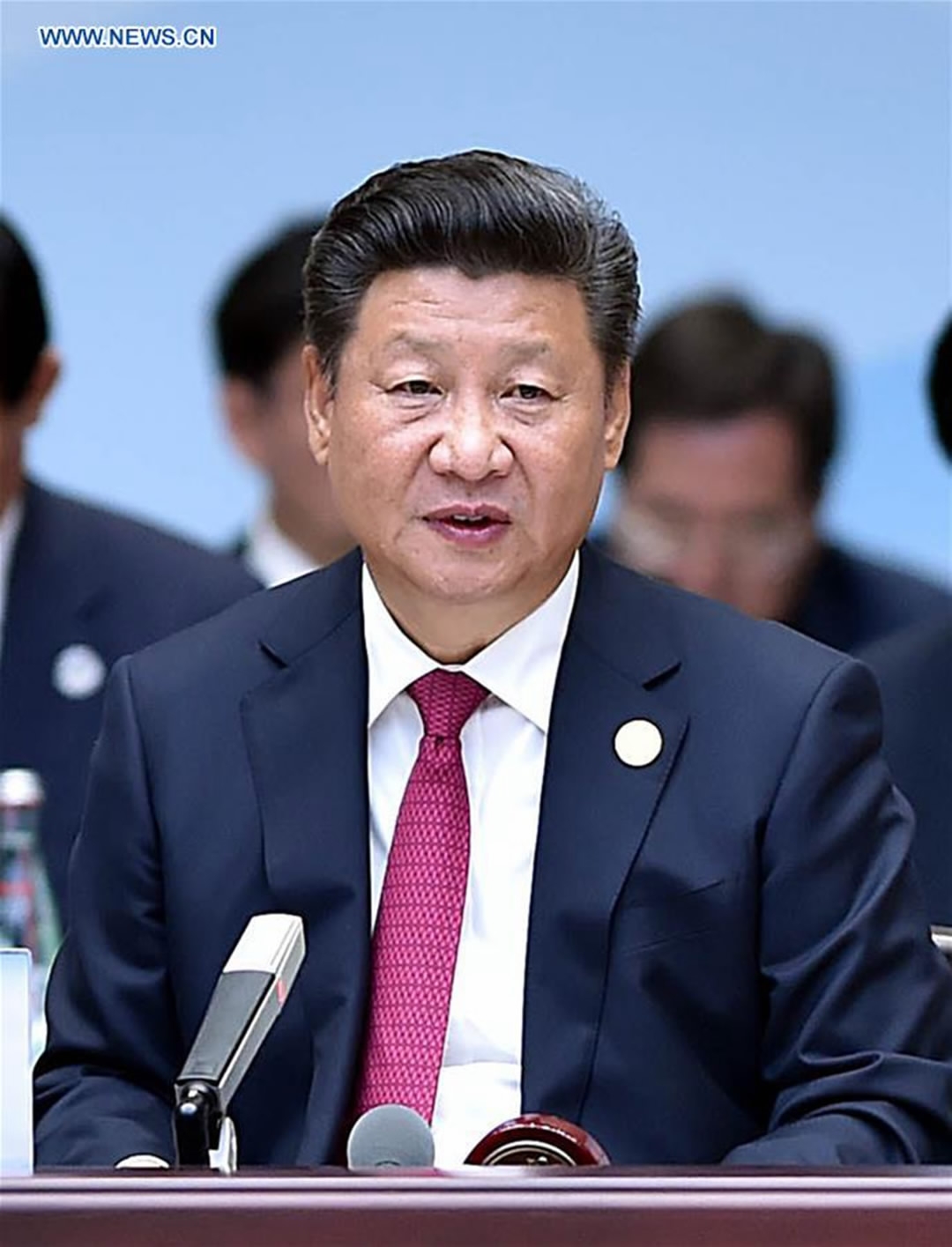
Chinese President Xi Jinping addresses the opening ceremony of the G20 summit in Hangzhou, China on September 4, 2016. /Xinhua Photo
Chinese President Xi Jinping addresses the opening ceremony of the G20 summit in Hangzhou, China on September 4, 2016. /Xinhua Photo
During the 2015 Antalya summit, Xi called on G20 members to reject protectionism as well as uphold and strengthen the multilateral trading regime in order to provide sufficient space for the development of different countries.
The summit in Turkey focused on inclusive growth and enhanced cooperation between G20 and low income developing countries. There were also plans for the G20 trade ministers to meet on a regular basis and to develop an action plan in 2016 to further align the bloc’s work with the 2030 Agenda for Sustainable Development.
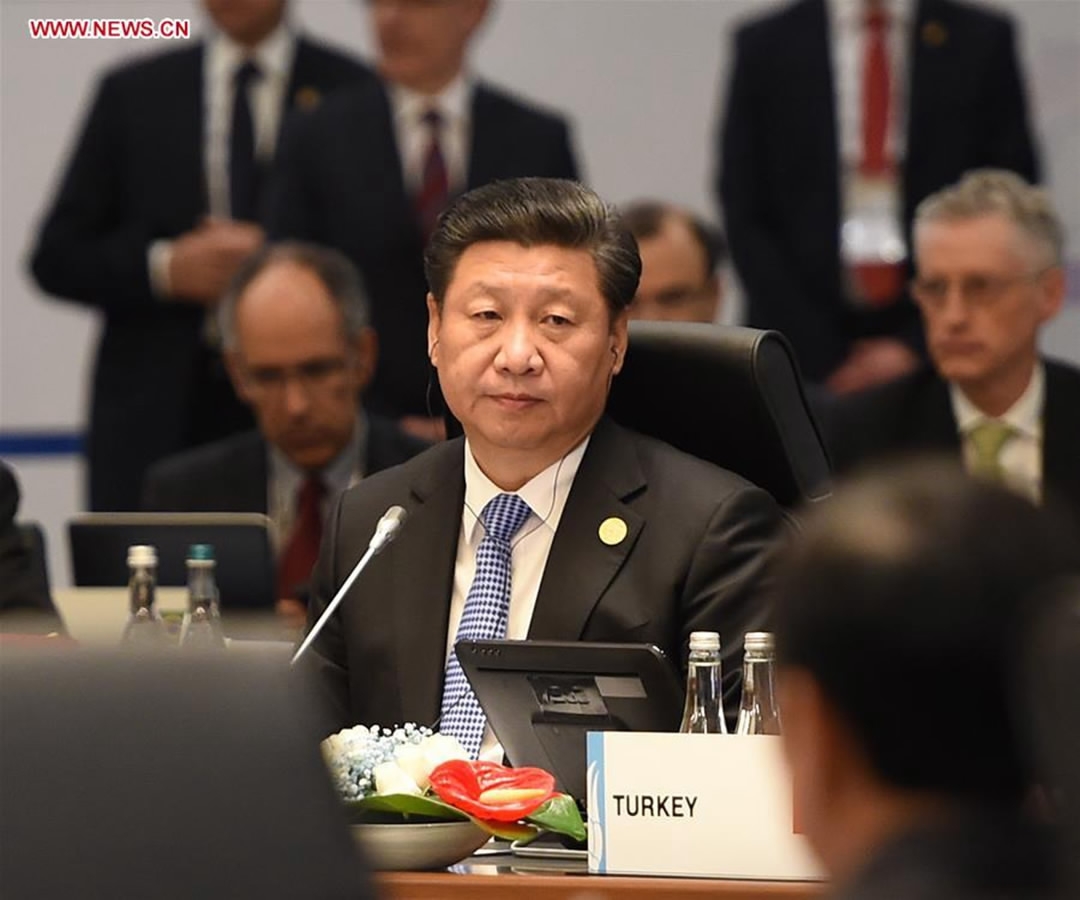
Chinese President Xi Jinping attends the first session of the 10th summit of G20 major economies in Antalya, Turkey on November 15, 2015. /Xinhua Photo
Chinese President Xi Jinping attends the first session of the 10th summit of G20 major economies in Antalya, Turkey on November 15, 2015. /Xinhua Photo
At the 2014 Brisbane summit, Xi stressed that major economies should jointly promote reforms and advance the transition of the world economy from cyclical recovery to sustainable growth. He noted efforts should be made to increase the presence of developing countries and emerging market economies.
The centerpiece of that summit was the delivery of country-specific growth strategies and a Brisbane Action Plan for growth. The G20 leaders also set a goal to lift the group’s GDP by at least an additional 2 percent by 2018.
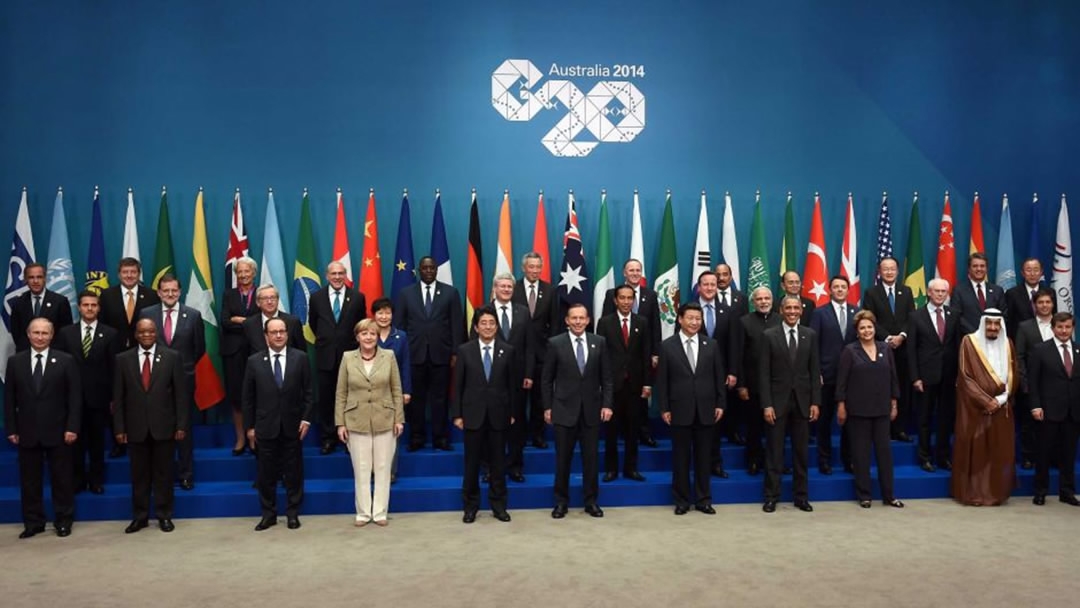
World leaders take a group photo during the Brisbane G20 summit. /Photo via G20 official website
World leaders take a group photo during the Brisbane G20 summit. /Photo via G20 official website
At the 2013 St. Petersburg summit, Xi, on behalf of China's new leadership, presented a host of new ideas, including innovative development, interconnected growth and integrated interests.
The key outcomes of this summit include the St. Petersburg Action Plan, which sets out reforms for achieving strong, sustainable and balanced growth, and a reaffirmed commitment to the implementation of agreed financial regulatory reforms.
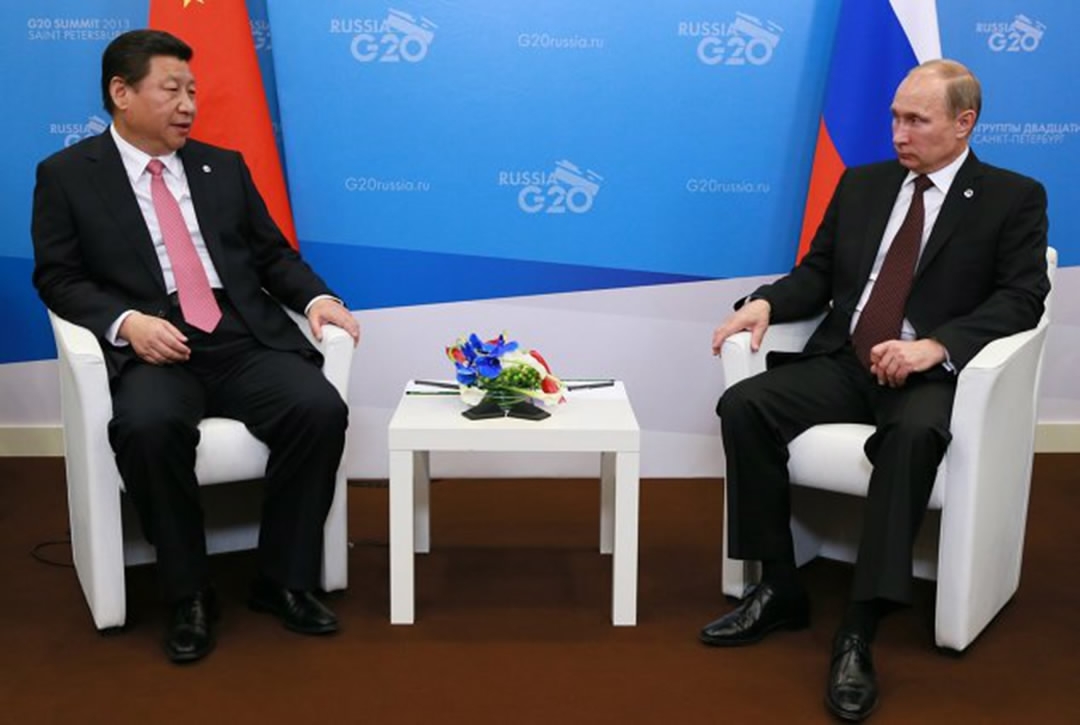
Chinese President Xi Jinping meets with Russian President Vladimir Putin in St. Petersburg on September 5, 2013. /Photo via G20 official website
Chinese President Xi Jinping meets with Russian President Vladimir Putin in St. Petersburg on September 5, 2013. /Photo via G20 official website
Challenges for the 2017 summit
There are major challenges to tackle at the 2017 Hamburg summit, in view of the differences between major powers on issues such as free trade, climate change and the refugee crisis, and doubts over whether G20 members can reach an agreement are obvious.
"Unlike the previous summits where disagreements were mostly on specific policies, this year’s summit has big countries, especially Germany and the US, facing divergences in basic values,” Li pointed out.
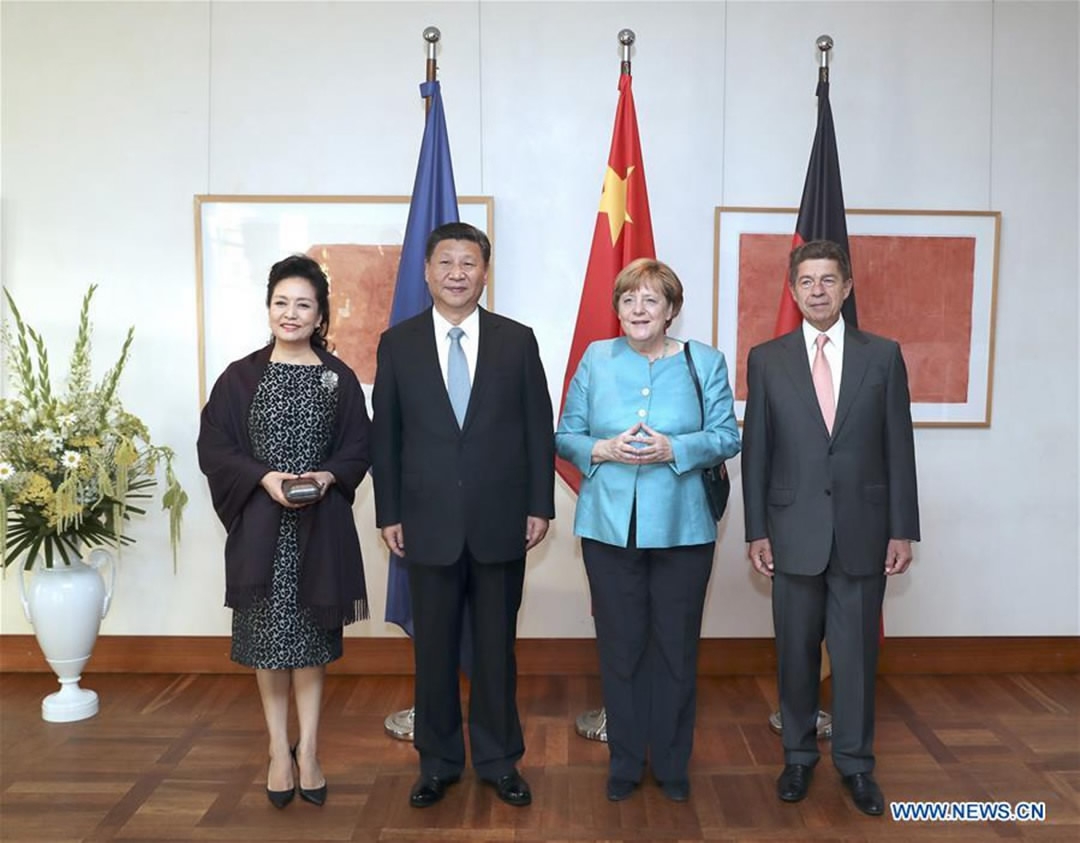
Chinese President Xi Jinping (2nd L) and his wife Peng Liyuan are greeted by German Chancellor Angela Merkel (2nd R) and her husband Joachim Sauer at the Max Liebermann House in Berlin, Germany on July 4, 2017. /Xinhua Photo
Chinese President Xi Jinping (2nd L) and his wife Peng Liyuan are greeted by German Chancellor Angela Merkel (2nd R) and her husband Joachim Sauer at the Max Liebermann House in Berlin, Germany on July 4, 2017. /Xinhua Photo
2017 marks 45 years since diplomatic relations between China and Germany were formally established. Frequent high-level exchanges between the two countries show a sound bilateral relationship.
Both countries agree on the significance of free trade and are committed to the Paris climate accord. In 2016, China became the largest trading partner of Germany.
Wang said China and Germany could cooperate on G20 affairs in order to achieve "seamless matching" between the Hamburg and Hangzhou summits, bring new consensus and accelerate the G20 transformation from a crisis response mechanism to one that focuses on long-term governance.
(Story written by CGTN's Yao Nian and Meng Yaping. Infographics designed by CGTN's Ran Boqiang.)

